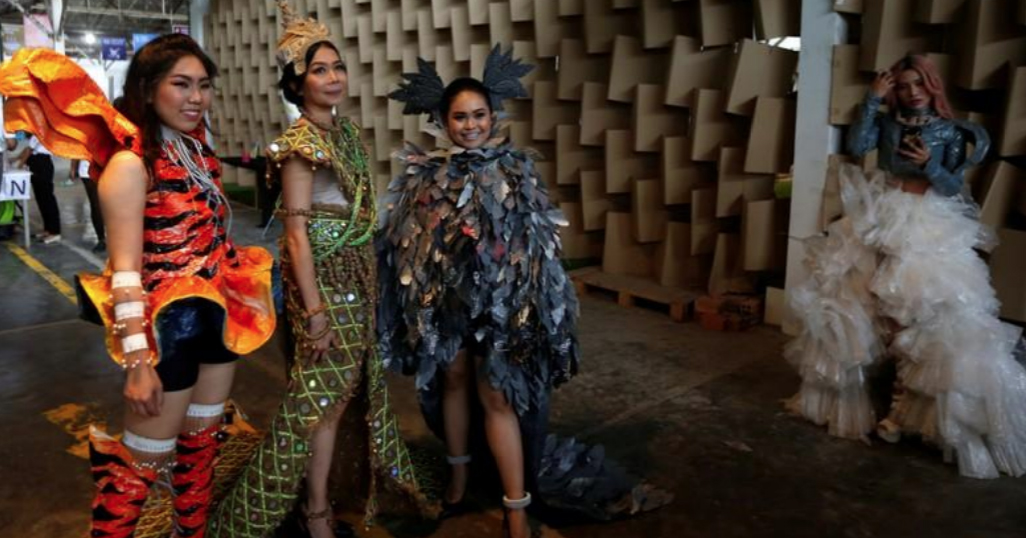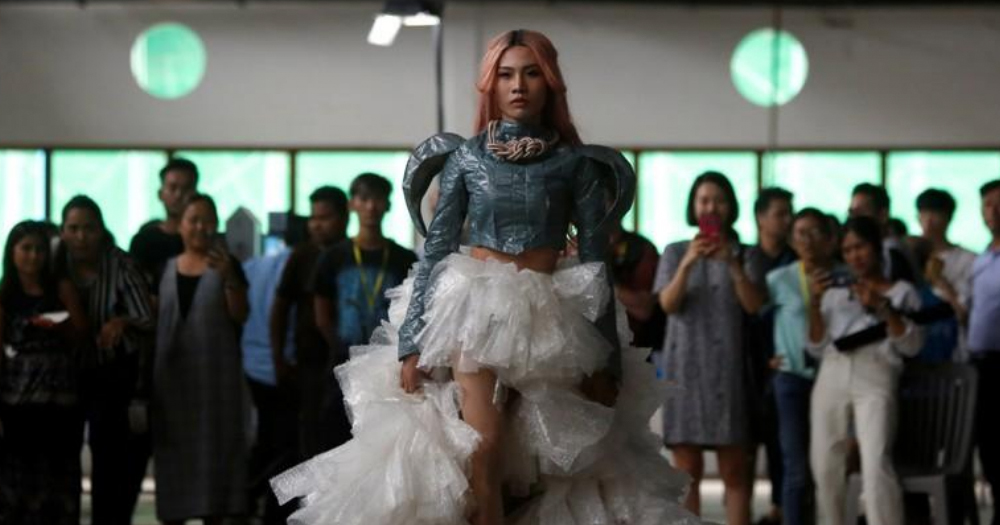A group of fashion designers in Cambodia have combined their passion for recycling with their LGBT+ activism in a new collective in which they craft beautiful designs from plastic waste.
Ith Sovannareach, the founder of La Chhouk Recycled and Creative Fashion spoke to Reuters about how the company’s ethos subverts homophobic rhetoric in certain Asian countries:
“Just five or 10 years ago, Cambodians saw the LGBT community as social trash. People saw them as unusual strangers.
“But now there is less discrimination, as we’ve seen more coverage on television and in newspapers about their capabilities.”

The fashion collective is composed of LGBT+ designers from all across Asia. The group focus on recycled materials with the aim of creating couture looks. Materials include bottle caps, cement sacks, plastic bags, cardboard boxes, cans and toilet rolls.
The garments produced are all at once stylish, strong and eco-friendly, with many pieces taking inspiration from traditional Khmer clothing.
A number of outfits have been recognised for their style and commercial merit and have attracted the attention of major corporations including Coca Cola and Heineken.
Moreover, the United Nations even commissioned a fashion show from the La Chhouk collective.
Despite their recent success, LGBT+ activism remains central to the group. Cambodia does not recognise LGBT+ relationships or allow for same-sex marriage. Additionally, anti-LGBT+ violence is prevalent in the country. The UN reported 100 homophobic attacks in Cambodia during the first four months of 2015.
La Chhouk is committed to the promotion of visibility in a society where many members of the LGBT+ community feel unsafe to come out. Sovannareach spoke about the way in which LGBT+ Cambodians are forced to hide their sexuality from their families:
“They have to pretend to be two different people. When they are at home, they act as their mothers want.”
One member of the collective, Thida, is transgender and cannot come out to her family:
“They still hope that I will marry someone of the opposite sex, so as not to make them upset or ashamed. Some people just regard us as strange animals.”
© 2019 GCN (Gay Community News). All rights reserved.
Support GCN
GCN is a free, vital resource for Ireland’s LGBTQ+ community since 1988.
GCN is a trading name of National LGBT Federation CLG, a registered charity - Charity Number: 20034580.
GCN relies on the generous support of the community and allies to sustain the crucial work that we do. Producing GCN is costly, and, in an industry which has been hugely impacted by rising costs, we need your support to help sustain and grow this vital resource.
Supporting GCN for as little as €1.99 per month will help us continue our work as Ireland’s free, independent LGBTQ+ media.

